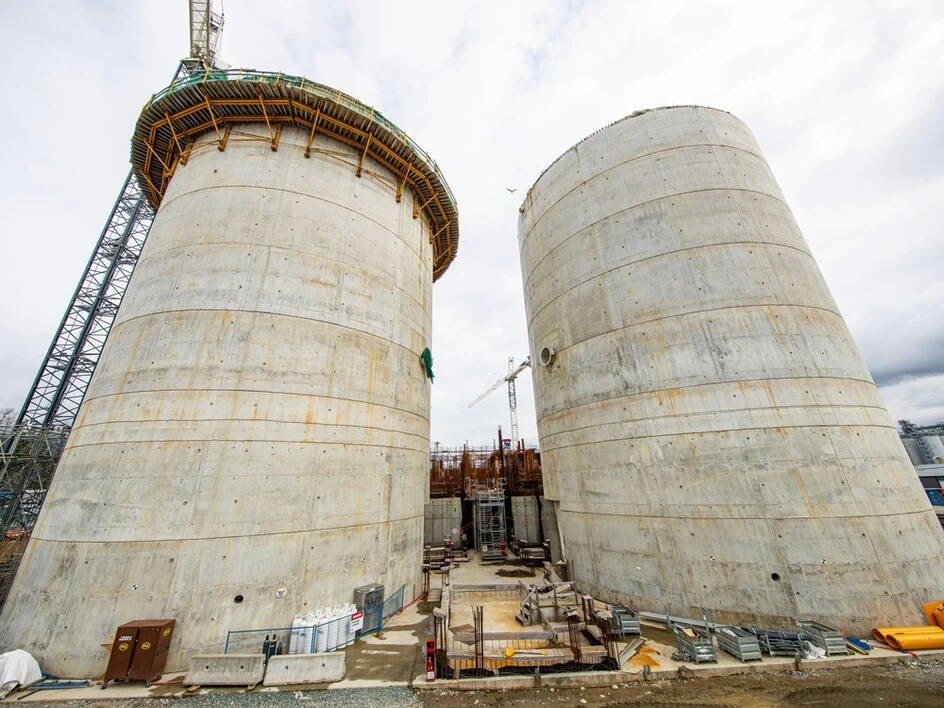Previous errors and repairs could increase the cost of “early works construction” by $85 million on Metro Vancouver’s delayed and over-budget North Shore wastewater treatment plant.
The request for more funds is expected to come before Metro’s liquid waste committee next week.
Early last year, Metro hired PCL Constructors Westcoast Inc. on a contract worth $40 million to develop a new plan for the troubled project, including a revised budget and schedule. The move came after the regional district terminated its contract with the treatment plant’s initial contractor, Acciona Wastewater Solutions LP, after it missed key milestones and appeared to have “abandoned” the project.
Acciona Wastewater, a subsidiary of a Spanish multinational, was hired in 2017 on a design-build-finance basis to complete what was to be a $700 million replacement for the Lions Gate wastewater plant. The project ended up being 2½ years overschedule and costs ballooned to $1.058 billion.
According to a report by Cheryl Nelms, Metro’s general manager for project delivery, PCL and design consultant AECOM have “identified significant deficiencies in (the previous) design and construction, and, in some cases, more extensive deficiencies than originally anticipated.”
Work over the last several months has been focused on identifying and repairing “concrete deficiencies” on structures built by Acciona. The project needs more repairs, and more challenging repair work, than originally expected. The design is also not as far along as reported by Acciona, according to the report.
As a result, the planning phase will take longer — and cost more.
The liquid waste committee will discuss the request at its March 15 meeting. If accepted, it will go to the Metro board for a decision at the end of the month.
Despite the request for an additional $85 million, the approved budget for the wastewater project remains $1.058 billion, including construction, which would be done as part of the project’s second phase.
“The current approved project budget and current year cash flow can accommodate the requested change order to the PCL contract,” says the report.
But there’s no guarantee the budget won’t increase eventually.
In a statement sent to Postmedia News, Nelms said the construction issues need to be addressed to “inform development of an accurate cost estimate and schedule, and allow construction to progress.”
A plan to complete the project, including an updated cost estimate and schedule, is expected to go before the Metro board in mid-2023. The main construction contract for the project’s second phase will also be awarded later this year.
In an update to the Metro liquid waste committee, Peter Navratil, GM of liquid waste services, says PCL has been correcting problems in the existing concrete structures and pouring concrete for walls and foundations for the influent pumping station and power building, while preparing for future concrete pours for the operations and management building.
Design work is also continuing, as well as equipment procurement and engagement with Metro’s operations and maintenance teams to review the design, and the development of contracts for technical services and construction completion.
Nelms couldn’t comment on a continuing lawsuit over the sewage plant debacle. Metro is countersuing Acciona, arguing the company’s breaches will cost the regional district $500 million, according to court documents filed in B.C. Supreme Court in Vancouver last summer.
Acciona originally sued Metro for $250 million, saying it was wrongfully terminated from the project and blamed delays and cost overruns on problems that included Metro picking an inadequate site for the facility and the regional district’s “wrongful conduct” during the design and review process.
Metro, in its response, disputed those claims and countered that Acciona failed to perform its obligations under the project agreement due to its “inability to, and failure to, properly interpret” design specifications, submitting design elements with numerous errors, while showing a lack of understanding of applicable laws, including B.C.’s Building Code.
— With files from Derrick Penner
>>> To comment on this article, write a letter to the editor: [email protected]



